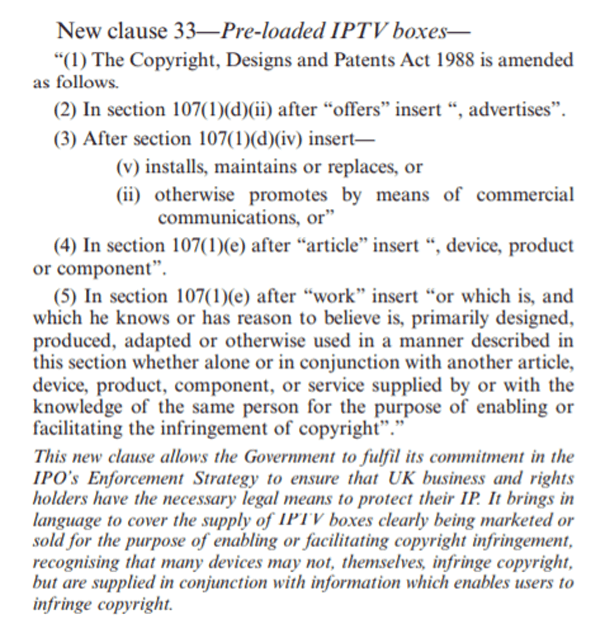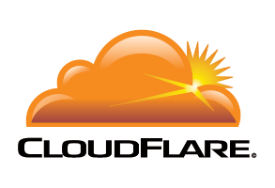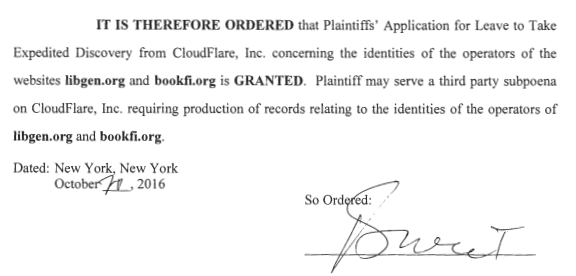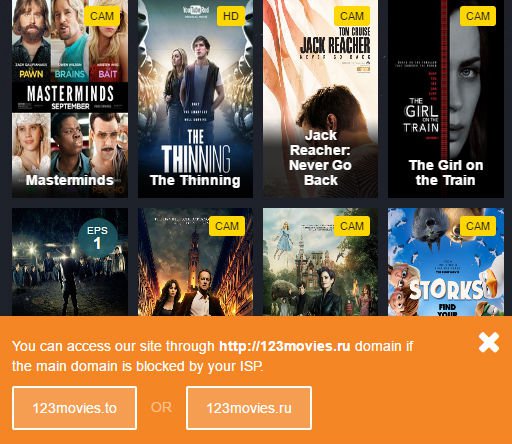Time Warner Cable Threatens Pirates With Account Termination
samedi 29 octobre 2016 à 18:47 It hasn’t made the news much over the past year, but the U.S. Copyright Alert System is still in full swing.
It hasn’t made the news much over the past year, but the U.S. Copyright Alert System is still in full swing.
First implemented more than three years ago, the main goal of the “six strikes” program is to educate the public. That is, informing people whose connections are being used to pirate, and pointing them to legal alternatives.
While repeat infringers face so-called mitigation measures, the copyright holders and ISPs have made it very clear that no one will permanently lose their Internet access. At least, not under the alerts program itself.
However, Time Warner Cable has decided to update its standard copyright alerts to emphasize that people who continue to infringe may risk losing their Internet subscription, email account, and more.
In recent months the following paragraph has been added to the copyright alert notification, underlining the point.
“In addition, in accordance with our acceptable use policy, your internet service may be subject to termination at our sole discretion if we continue to receive credible allegations that your internet connection has been used to share copyrighted content without permission of the copyright owner.”
Time Warner Cable adds that an account termination may also result in the loss of the email account at the ISP, as well as many other third-party services that rely on the Internet, such as Netflix.

The rest of the copyright alert messaging remains intact and has remained pretty much the same since 2013. Overall it’s well-balanced, informing subscribers how the system works and what their rights are.
The big question is, why did Time Warner Cable add the termination language? After all, the acceptable use policy itself isn’t new in any way.
Without an official statement we can only speculate, but there have been some recent developments that may have played a role.
There’s the lawsuit between BMG and Cox Communications, where the latter lost its safe harbor protection because it failed to implement a repeat infringer policy. As a result, Cox must pay $25 million in damages, a ruling that’s currently under appeal.
This may have prompted Time Warner Cable to make its stance on repeat infringers more visible.
At the same time, various copyright holder groups have been turning up the pressure. The MPAA, for example, told the U.S. Copyright Office that terminating the accounts of persistent pirates is “critical”.
In the U.S. it is currently rare for ISPs to disconnect infringing subscribers, with many arguing that only a court can decide if someone can be stripped of an essential service such as Internet access.
However, the MPAA stressed that Internet providers “must terminate users who repeatedly and blatantly infringe copyright, regardless of whether there has been a judicial determination that the user is liable for copyright infringement.”
At the same time, ISPs and copyright holders are currently negotiating over the Copyright Alert System, including whether it should continue or if changes are needed to improve the current procedure.
Undoubtedly, the repeat infringer requirement will be part of these discussions. Since the MPAA is one of the founding groups of the program, they are likely to ask all ISPs to include this language in their notifications.
Despite the added account termination warning, TorrentFreak hasn’t received any reports that Time Warner Cable is disconnecting subscribers on a large scale. Perhaps this means that the threats are doing their job, or…?
—
—
Below is an example of Time Warner Cable’s full alert, in the educational stage (emphasis is original).
Dear Subscriber,
We have been notified that copyrighted content may have been shared using your Internet connection without permission of the copyright owner.
What does that mean?
Copyright owners (such as artists, moviemakers, authors) and their representatives routinely monitor peer-to-peer networks to see if their content (such as music, movies, and TV shows) is being shared without their permission. If they notice somebody sharing their content without their permission through a Time Warner Cable account, they let us know.
As the primary account holder, you are responsible for making sure your account is not used for copyright infringement. Please note that we don’t know which computer or other device may be the one to have triggered the notification; it could be any device using your account.
What was allegedly shared and when?
File Name: Pirate Something
Content Type: Movie
Content URL: Pirate link
Shared: 6:23pm – 1/3/2099
IP Address: 000.00.000.00Did you provide my personal information to the copyright owner?
We have not shared any of your personal information with the copyright owner in connection with the notice that we received. Rather, the copyright owner or its representative simply provided us with an IP address associated with your account and we then sent this alert to you directly.
Alright, so what do I need to do?
– If you have been sharing content illegally using your Internet connection, please stop doing so immediately.
– Make sure that everyone who uses your Internet connection knows that you received this alert, and advise them not to make any illegal use of music, television and movie content. For information regarding authorized source for music, movies and TV shows, please see http://www.copyrightinformation.org/a-better-way-to-find-movies-tv-music/. Other examples of legal sources include: http://www.timewarnercable.com/en/residential-home/tv/channels/on-demand.html, and http://www.timewarnercable.com/en/residential-home/tv/premiums.html
– Secure your home wireless network so that nobody who is unauthorized to use it is able to do so. (learn more here: http://onguardonline.gov/articles/0013-securing-your-wireless-network)
–Be aware of the dangers associated with using peer-to-peer (“P2P”) networks : P2P programs can pose dangers to your computer and other devices, and to our network. Risks can include mistaken downloading of malware, pornography or copyrighted material, and allowing any anonymous person on the Internet to access and copy your computer files. Therefore, it is important that you inspect your computer and other devices for P2P programs and ensure that you are neither intentionally nor inadvertently making copyrighted works available for uploading by others. Click here for more information about the various risks: http://onguardonline.gov/p2p
Hopefully this is the last time we contact you. If a copyright owner does not identify further instances of alleged copyright infringement involving your account then this will be your last alert from us.And what if this continues to happen?
Using your account to share content without the copyright owner’s permission can be a violation of U.S. copyright laws, and of our acceptable use policy. Under the Copyright Alert System (for more on CAS click here http://www.copyrightinformation.org), further instances of suspicious activity involving your account may result in our undertaking measures that will temporarily affect your Internet experience. The range of actions may include redirection to a landing page for a period of time or until you contact Time Warner Cable.
We will, of course, provide you with advance notice prior to taking any such steps. We will also offer you the ability to challenge a copyright owner’s notices through an independent party prior to any service alterations. You may wish to preserve records or information that could be used to demonstrate that the activity in question was non-infringing.
In addition, in accordance with our acceptable use policy (located at http://help.twcable.com/twc_misp_aup.html), your internet service may be subject to termination at our sole discretion if we continue to receive credible allegations that your internet connection has been used to share copyrighted content without permission of the copyright owner. Note that the termination of your internet service may also result in the loss of any Time Warner Cable provided email addresses; other services accessible via your Time Warner Cable high speed data service, such as Wi-Fi, Roku, IP Video, Over-the-Top content, etc.; and other third party provided services you receive that are internet reliant (for example, internet accessible third party phone services).
I still have questions about this alert; where can I go?
For additional information about this alert, to learn how you can prevent further alerts, and to understand more about the Copyright Alert System, please visit the Center for Copyright Information – Copyright Alert System website at http://www.copyrightinformation.org.
Thank you for subscribing to Time Warner Cable’s high speed data service. We look forward to having you as a customer for years to come.
Sincerely,
Customer Service
Source: TF, for the latest info on copyright, file-sharing, torrent sites and ANONYMOUS VPN services.


 As one of the leading CDN and DDoS protection services, Cloudflare is used by millions of websites across the globe.
As one of the leading CDN and DDoS protection services, Cloudflare is used by millions of websites across the globe.
 In 2014, The Court of The Hague handed down its decision in a long-running case which had previously forced two Dutch ISPs, Ziggo and XS4ALL, to block The Pirate Bay.
In 2014, The Court of The Hague handed down its decision in a long-running case which had previously forced two Dutch ISPs, Ziggo and XS4ALL, to block The Pirate Bay. The list of websites that are blocked in the UK for facilitating copyright infringement is growing longer and longer.
The list of websites that are blocked in the UK for facilitating copyright infringement is growing longer and longer.